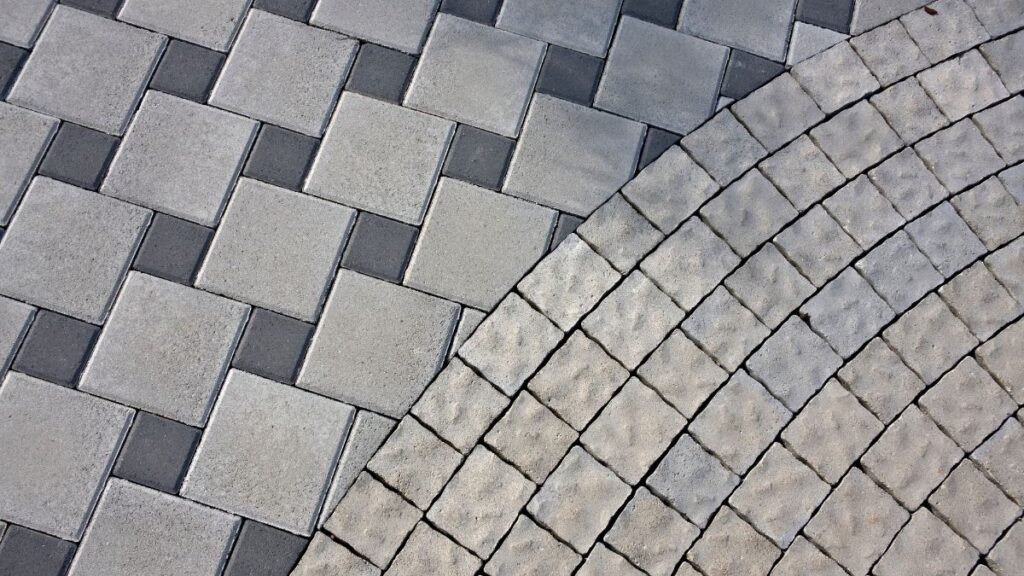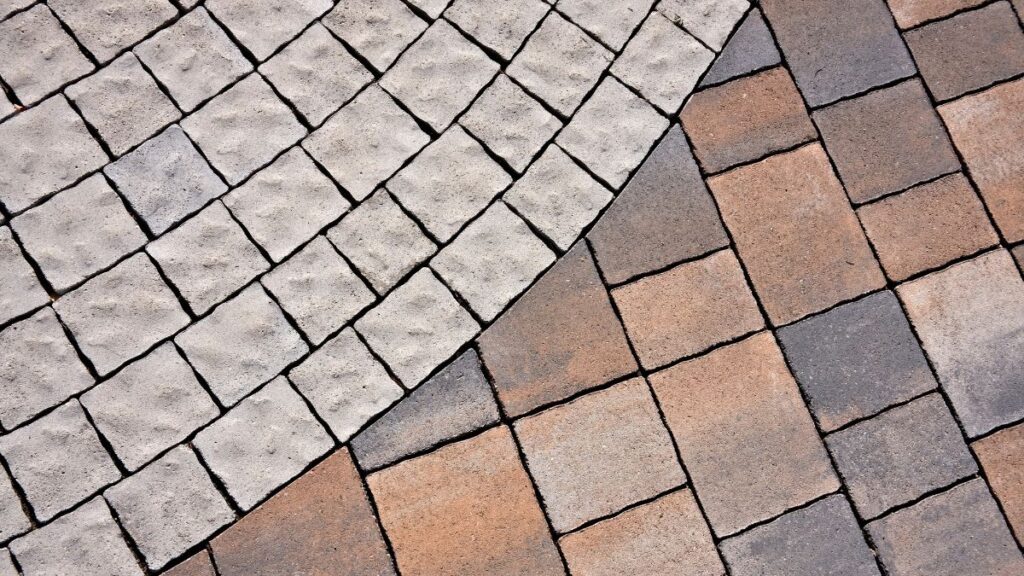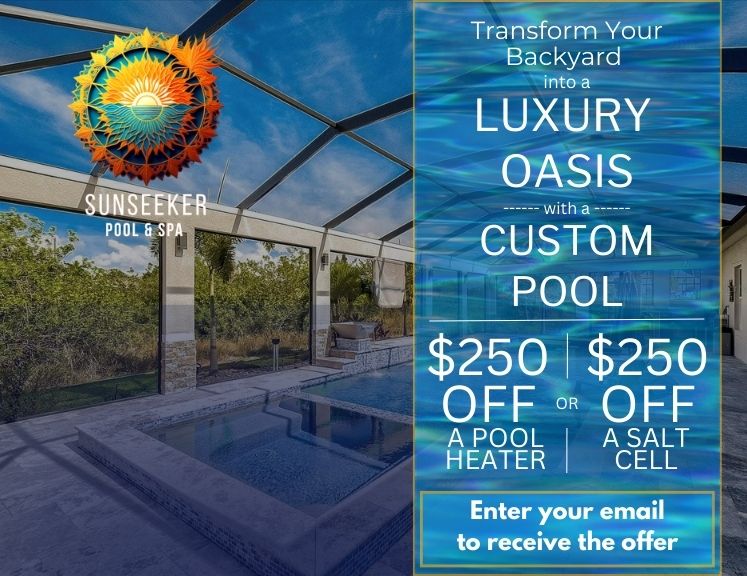When choosing materials for your outdoor space, especially in the unique climate of Southwest Florida, it’s essential to consider how each option will perform under local conditions. Two popular choices for pool and patio areas are pavers and travertine. Both have their strengths and weaknesses, so let’s dive into the pros and cons of each to help you make the best decision for your space.
Understanding the Climate of Southwest Florida
Southwest Florida is known for its hot, humid climate with plenty of sunshine. This weather can significantly impact the performance and longevity of outdoor materials. High temperatures, frequent rain showers, and intense UV rays all play a role in how materials hold up over time.

What Are Pavers?
Pavers are typically made from concrete, brick, or stone and are designed to interlock for a sturdy, durable surface. They come in various shapes, sizes, and colors, allowing for a high degree of customization.
What Is Travertine?
Travertine is a natural stone that forms in mineral springs. It’s known for its beautiful, natural look and is often used in upscale landscaping and pool areas. Its warm, earthy tones can add a luxurious touch to any outdoor space.
Durability of Pavers
- Pros:
- Strength and Stability: Pavers are incredibly durable and can withstand heavy loads, making them ideal for driveways and high-traffic areas.
- Low Maintenance: They are easy to clean and can be replaced individually if damaged.
- Cons:
- Potential for Staining: Concrete pavers can be prone to staining from oils and other substances.
- Heat Absorption: Pavers can become very hot under the Florida sun, which might be uncomfortable to walk on.

Durability of Travertine
- Pros:
- Natural Resilience: Travertine is naturally resistant to heat, making it cooler to the touch compared to pavers.
- Unique Appearance: Each piece of travertine is unique, adding a distinctive, high-end look to your outdoor area.
- Cons:
- Porosity: Travertine is more porous than pavers, which can lead to issues with staining if not properly sealed.
- Cost: It tends to be more expensive than pavers, both in terms of material and installation.
Aesthetic Appeal: Pavers
- Pros:
- Versatility: Available in numerous styles, colors, and patterns, pavers offer a wide range of design options.
- Consistent Look: They can provide a uniform appearance which some homeowners prefer.
- Cons:
- Less Natural: While pavers can be designed to mimic natural stone, they lack the organic charm of real travertine.
Aesthetic Appeal: Travertine
- Pros:
- Elegant and Timeless: The natural beauty of travertine adds a touch of elegance and timelessness to any outdoor area.
- Unique Variations: Each stone has unique variations, which can enhance the overall aesthetic.
- Cons:
- Limited Color Options: While beautiful, travertine is less versatile in color and pattern compared to pavers.
Installation Considerations for Pavers
- Pros:
- Quick Installation: Pavers can generally be installed relatively quickly.
- Flexibility: They can be removed and replaced if necessary, making repairs easier.
- Cons:
- Base Preparation: Proper base preparation is crucial to prevent shifting and uneven surfaces.
Installation Considerations for Travertine
- Pros:
- Smooth Finish: Travertine can be installed with a smooth, level finish that looks luxurious.
- Natural Fit: Fits well with natural landscapes and can be integrated seamlessly into garden designs.
- Cons:
- Complex Installation: Installation can be more labor-intensive and may require professional expertise.
- Sealing Required: Regular sealing is necessary to maintain its appearance and prevent staining.
Cost Comparison
- Pavers: Generally, more affordable both in terms of material and installation costs.
- Travertine: Higher initial cost due to the material and specialized installation, but offers a distinctive, upscale look.
Maintenance Needs for Pavers
- Pros:
- Simple Maintenance: Regular sweeping and occasional pressure washing are usually sufficient.
- Cons:
- Stains: May require specific cleaning agents for stubborn stains.
Maintenance Needs for Travertine
- Pros:
- Durable Finish: When properly sealed, travertine can be relatively low-maintenance.
- Cons:
- Regular Sealing: Requires more frequent sealing to protect against staining and weathering.
Which Is Better for Southwest Florida’s Climate?
- Pavers: While durable and cost-effective, pavers can become very hot and may require more frequent cleaning to maintain their appearance.
- Travertine: Its heat resistance and natural beauty make it an excellent choice for enhancing outdoor areas, though it requires more upkeep and a higher initial investment.
Final Thoughts
Choosing between pavers and travertine for your Southwest Florida home involves weighing durability, aesthetic appeal, cost, and maintenance. Both materials have their merits, so consider your specific needs and preferences before making a decision.
———————————
Sunseeker Pool and Spa best inground pool construction company is your go-to destination for exceptional pool and spa construction, renovation, and repair services in Southwest Florida. Our experienced pool builders specialize in creating stunning aquatic retreats that perfectly complement your lifestyle. Serving Port Charlotte, Gulf Cove, Englewood, Venice, Rotonda West, and surrounding areas in Florida. Our dedicated team ensures that your vision becomes a reality. Whether you desire a new pool, want to upgrade your current one, or need expert repairs, Sunseeker Pool and Spa best inground pool constructor has you covered. Dive into luxury and relaxation by contacting us today to schedule a consultation!
Connect with us on Facebook for the latest updates and news.
Join our Instagram community for visual inspiration and behind-the-scenes moments.
For any queries, Contact us!












